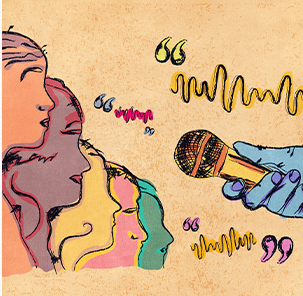Subscribe and receive the best Inkyfada podcasts straight to your mailbox.
Don't miss out! Subscribe to our newsletter to receive the latest Inkyfada podcasts.
Thanks for your inscription
Unsubscribe at any time

The Romans took Carthage and its territories in 146 BC. Thus was born Africa, the province of Roman Africa which, a century later, would include Numidia and Tripolitania.
The Roman-Africans (Afers), Punic and Romanized Berber people, the Moors who retained their ancestral language and way of life, and the Roman settlers constituted the population for over four centuries. They embraced Christianity with such fervor that the province became by far the most Christianized of the Western Roman Empire. For a long time persecuted by Rome, Christian Africans were caught up in the turmoil of the Donatist schism, when Christianity became the official religion of the Empire.
In 439, the Vandals who came to settle in Roman Africa offered the country one of the most beautiful and unknown pages of its history, despite the religious tensions caused by their Arianism. In 533, they were driven out by Justinian's Byzantines, who, coming as liberators, did not expect the fierce resistance of the Moors.
The country sank into a deep socio-economic crisis, dozens of fortresses were erected on the borders, but the province managed to save Byzantium from the Sassanian Persians by offering a local dynasty to the imperial throne, the Heraclids, in 610. However, it was just a few years later that the Arabs would come into play...
We are pleased to have as our guests today: Mr. Taher Ghalia, historian and archaeologist specialized in architecture and mosaics of Late Antiquity, and Mr. Mohamed Ben Abbes, historian specialized in Late Antiquity and the Early Middle Ages.
*The podcast director extends his sincere thanks to the honorable professors Adnan El Ghali and Nouri Boukhchim.
Inkyfada Podcast is the first platform entirely dedicated to original Tunisian podcasts, and was conceived by Inkyfada media in collaboration with the in-house research and development laboratory, InkyLab. Inkyfada joined the global podcast boom in 2017, when the team produced the first Tunisian audio documentary, diving deep into the belly of the El Kamour struggle taking place in the desert. Since then, Inkyfada Podcast has produced a wide variety of documentaries, investigations, and podcast series, as well as articles accompanied by music; covering a multitude of contemporary issues in order to offer an immersive and alternative podcast experience. Whilst exclusively offering audio content, the Inkyfada Podcast team upholds the same core values and principles of inkyfada.com, and is committed to producing high quality content though a dynamic and meticulous production process. In addition to the permanent team, Inkyfada podcast works closely with various journalists, artists, illustrators, musicians and other content creators in order to diversify the platform and support artistic creativity. These podcasts differ from traditional radiophonic content in that the applied production and editing process is more akin to cinematographic techniques, in addition to being web-based, downloadable and accessible on demand. Additionally, Inkyfada Podcast uniquely offers subtitles in French, Arabic and English for all audio content, the majority of which is recorded in Tunisian or in the preferred language of the speaker in question.